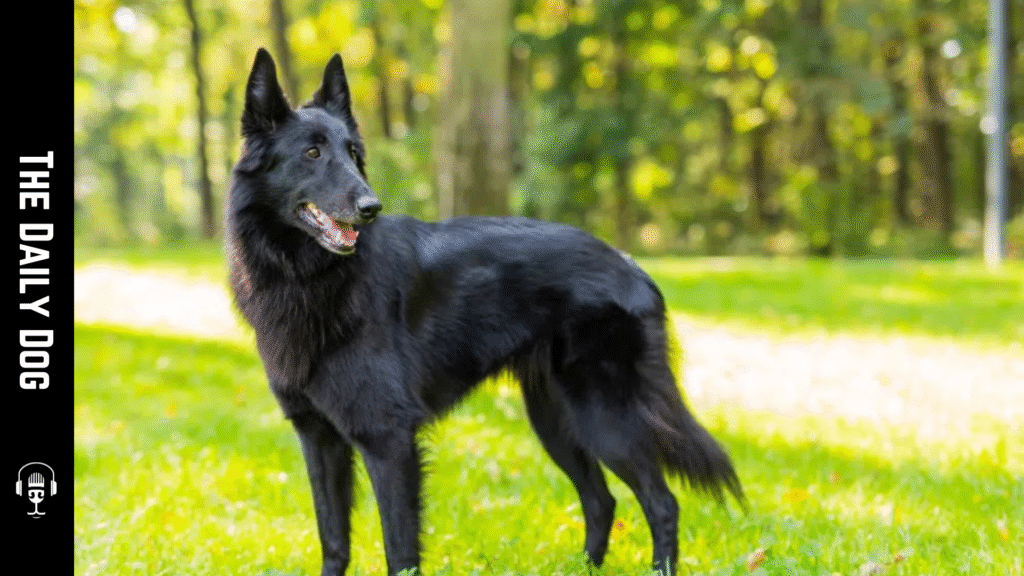Renowned for their striking black coats, keen intelligence, and unwavering devotion, Belgian Sheepdogs, also known as Chien de Berger Belge, are standout companions for households that value activity, trainability, and a strong working bond. This breed’s history is rooted in herding and guarding, traits that continue to shape its temperament and needs today. If you’re considering adding a Belgian Sheepdog to your family, understanding their unique profile, temperament, exercise requirements, grooming, and training, can help ensure a harmonious match and a long, fulfilling relationship.
A Storied Heritage and Distinctive Appearance
The Belgian Sheepdog is one of four Belgian herding breeds developed in Belgium in the late 19th and early 20th centuries. Distinctive for its solid black coat, almond-shaped eyes, and elegant, athletic build, the breed exudes poise and purpose. Their double coat provides weather resistance, with a dense undercoat that protects them in varying climates. This breed’s appearance hints at its energetic personality: sleek enough for speed and agile enough for precise work. Their expression typically conveys alertness and attentiveness, reflecting a lifelong readiness to respond to cues from a trusted handler.
Intelligence, Trainability, and Working Instincts
Belgian Sheepdogs are celebrated for their high intelligence and eagerness to learn. They excel in obedience, agility, herding trials, and service work, often outperforming many other breeds in problem-solving tasks. This cognitive acuity, however, comes with a caveat: they crave mental stimulation and purposeful work. Boredom can lead to chewing, digging, or other unwanted behaviors if their needs aren’t met. Effective training relies on consistency, positive reinforcement, and engaging activities that challenge both mind and body. When given clear expectations and frequent opportunities to demonstrate their skills, Belgian Sheepdogs become reliable, responsive partners who thrive on teamwork.
Temperament: Loyal, Protective, and People-Focused
A Belgian Sheepdog forms a profound bond with its family. They are typically affectionate with those they know and cautious with strangers, a trait rooted in their protective herding heritage. With proper socialization from a young age, most dogs in this breed become confident, well-mannered companions who enjoy participating in family life. They tend to be discerning and observant, making them excellent watchdogs without being overly aggressive. This balance helps them fit into homes that value both closeness and a measured, respectful presence around guests and unfamiliar environments.
Exercise and Mental Stimulation: The Cornerstones of Health and Happiness
Active households suit Belgian Sheepdogs best. Daily physical exercise is essential to prevent restlessness and maintain a healthy weight. Aim for at least 60 to 90 minutes of varied activity each day, incorporating brisk walks, runs, or hikes, plus interactive play that stimulates their natural herding instincts. In addition to physical activity, mental challenges are critical. Puzzle toys, scent games, obedience sessions, and agility courses provide the cognitive engagement that keeps this breed content and well-behaved. A well-exercised Belgian Sheepdog is typically even-tempered, cooperative, and eager to please.
Grooming, Care, and Health Considerations
This breed’s thick double coat requires regular grooming to prevent matting and reduce shedding, especially during seasonal changes. Weekly brushing helps manage undercoat growth, and more frequent grooming may be needed during shedding seasons. Bathing should be as needed, using a canine-specific shampoo that won’t strip natural oils. Routine dental care, nail trims, and ear checks round out a holistic grooming plan. Belgian Sheepdogs tend to be robust and long-lived, but like all large breeds, they can be predisposed to certain health concerns. Responsible ownership includes annual veterinary checkups, a balanced diet suited to their activity level, and awareness of breed-specific risks such as hip dysplasia or progressive retinal atrophy. Early detection and preventive care contribute to a longer, healthier life together.
Socialization and Training: Building Trust and Cooperation
Effective socialization starts early. Expose your puppy to a wide range of people, animals, environments, and sounds in controlled, positive settings. This foundation helps reduce wariness and supports confident behavior as the dog grows. Training should emphasize consistent cues, positive reinforcement, and structured routines. Belgian Sheepdogs respond well to reward-based methods that acknowledge their intelligence with clear feedback, praise, and motivating rewards. Because this breed thrives on purpose-driven tasks, incorporating training into daily life—such as herding-inspired games, nose work, or obedience challenges—keeps them engaged and cooperative.
Living Arrangements: Fit for Active Homes
Belgian Sheepdogs adapt best to homes with access to outdoor space and opportunities for regular, structured activity. They are not ideal for apartment living unless their exercise needs can be met consistently. Families with time to devote to daily training, social enrichment, and physical challenges will reap the most benefit from this breed’s loyalty and enthusiasm. Because they are inherently protective, owners should establish clear boundaries and routines to ensure safe, confident behavior around visitors and new situations. The bond that develops between dog and family in such households is typically strong and enduring.
Choosing the Right Belgian Sheepdog: What to Look For
When evaluating a Belgian Sheepdog, consider temperament, energy level, and the commitment required to meet their needs. Meet potential dogs and observe how they interact with you and others. Ask about their background, training history, and social experiences. If adopting from a breeder, seek one who prioritizes health testing, transparent lineage, and early socialization. A well-matched Belgian Sheepdog will display curiosity, focus, and a willingness to engage in training or play. Prospective owners should be prepared for a breed that thrives on companionship, challenge, and shared activities.
Training Tips for Success
- Establish a routine: Belgian Sheepdogs respond well to consistency. A predictable daily schedule reduces anxiety and helps with learning new cues.
- Use high-value rewards: Small bites of real food, favorite toys, or praise can serve as powerful motivators for this intelligent breed.
- Keep sessions short and varied: Frequent, shorter training bouts maintain attention and prevent burnout.
- Integrate problem-solving tasks: Hide-and-seek games, scent work, or obstacle navigation tap into their natural drive and intelligence.
- Socialize regularly: Exposure to different people, pets, and environments strengthens confidence and reduces overstimulation.
The Joy of Belonging to a Belgian Sheepdog
Owning a Belgian Sheepdog can be a deeply rewarding experience for the right household. Their unwavering loyalty, coupled with bright, responsive minds, creates a partnership built on mutual trust and shared purpose. When their exercise, grooming, and mental stimulation needs are met, these dogs become affectionate, reliable members of the family who delight in participating in daily life, whether that means hiking, training sessions, or simply enjoying quiet moments at home.
Potential Challenges and Considerations
As with any breed, there are considerations to keep in mind. Their high energy and intelligence demand consistent leadership, regular training, and ongoing mental engagement. Without proper outlets, even the most well-meaning Belgian Sheepdog can exhibit undesirable behaviors. Prospective owners should assess their schedule, living situation, and readiness to commit to long-term care, including annual veterinary visits, annual grooming, and ongoing enrichment. With thoughtful planning, the Belgian Sheepdog can thrive as a devoted partner and accomplished companion for years to come.
Enduring Partnership and Shared Adventures
The Belgian Sheepdog embodies a blend of elegance, resilience, and purpose. Their beauty is matched by brains and a heart that seeks to please. For families who relish active days, clear routines, and meaningful training, this breed offers a remarkable partnership built on communication, trust, and shared accomplishments. The result is more than a pet; it is a devoted teammate who stands ready for every challenge, every adventure, and every moment of everyday life.
Call to Action
If you’re interested in expanding your understanding of canine training and expert insights from seasoned trainers who have worked with thousands of clients, listen to our podcast, Dog Works Radio for training tips and tricks from top trainers that have worked with over 3000 clients at https://dogworksradio.com. This resource is designed to complement your journey with a Belgian Sheepdog, offering practical strategies and inspiration to help you build a strong, positive relationship with your canine companion.










